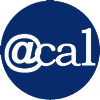Fourth-Annual iBio Conference Fosters
Community and Learning in the Biosciences
By Kirsten Mickelwait

On August 25, 2025, the fourth-annual Inclusive Biosciences (iBio) Conference was held at UC Berkeley’s Li Ka Shing Center to explore the intersection of science, society, and social justice while strengthening community connections and supporting overall professional development. This year’s conference theme was “Science and Society: Bridging Communities and Communicating Ideas.”
With a dynamic mix of keynote talks, panels, and interactive workshops, the full-day conference was designed to facilitate conversation about issues of belonging and inclusion in science within our current societal and political environment. It also provided practical tools for more effective science communication and offered opportunities for professional development.
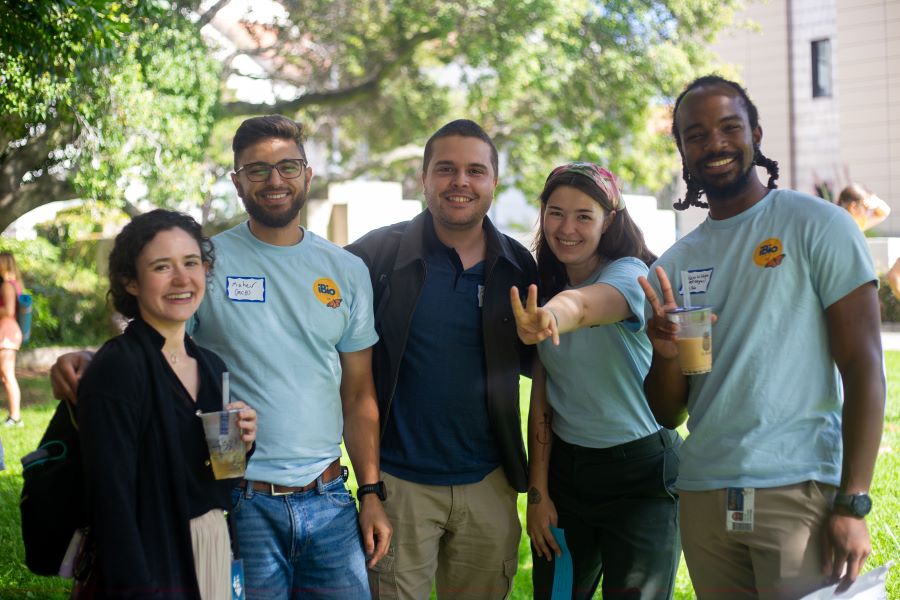
According to Director of Community & Belonging Aubrey Green, the planning committee sought to create a program focusing on three themes: Communication in Science, Social Change Through Science, and Reflecting on Inclusive Practices in STEM.
“I was most pleased to see the continuity of this community-building event, especially the cross-department engagement among graduate students, faculty, and beyond,” says Green. “The event sustained its growth in attendance, reach, and impact from the previous year, which was rewarding to witness. It’s becoming a central experience for members across MCB and the Biosciences Division, fostering learning, connection, and professional development in ways that might not happen otherwise.”
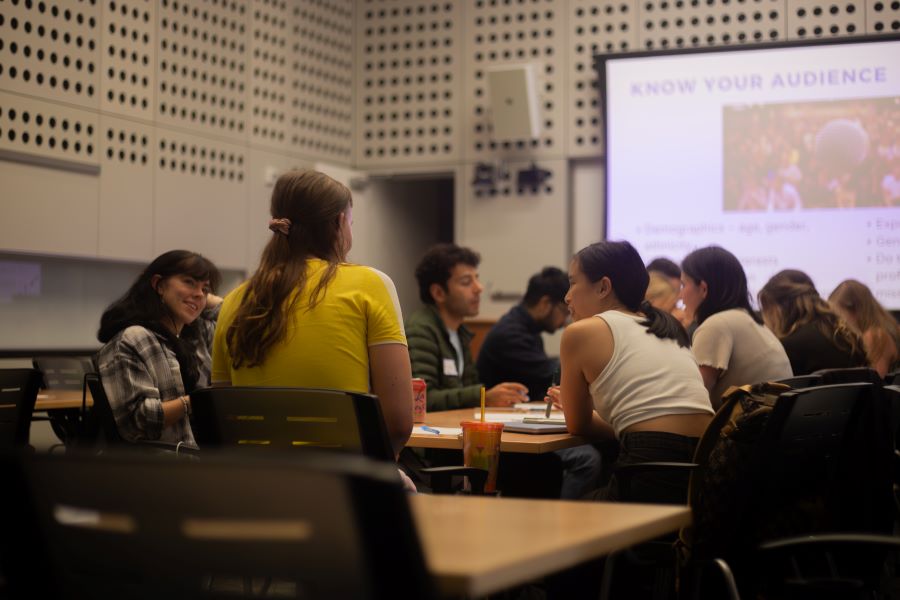
Program highlights included keynote speaker Bil Clemons, a professor at CalTech; a panel discussing “Silenced Science Stories”; a professional development workshop in science communication called “Message in a Box: Sharpening Your Science Story”; and “Science Stories for Social Change: Lessons and Strategies from a Filmmaker.” The closing keynote address was delivered by UC Berkeley’s Assistant Vice Chancellor and Chief of Staff Amber Johnson.
“Science is rapidly becoming a more collaborative field, and learning to work in a team toward a shared goal, in any context, has direct ties to being successful as a researcher,” says doctoral candidate Sydnee Gould, another of the event’s planners and participants. “Working in this team setting helped reinforce the idea that great minds think differently, and we all brought something unique to the table in order to create a cohesive and engaging conference program.”
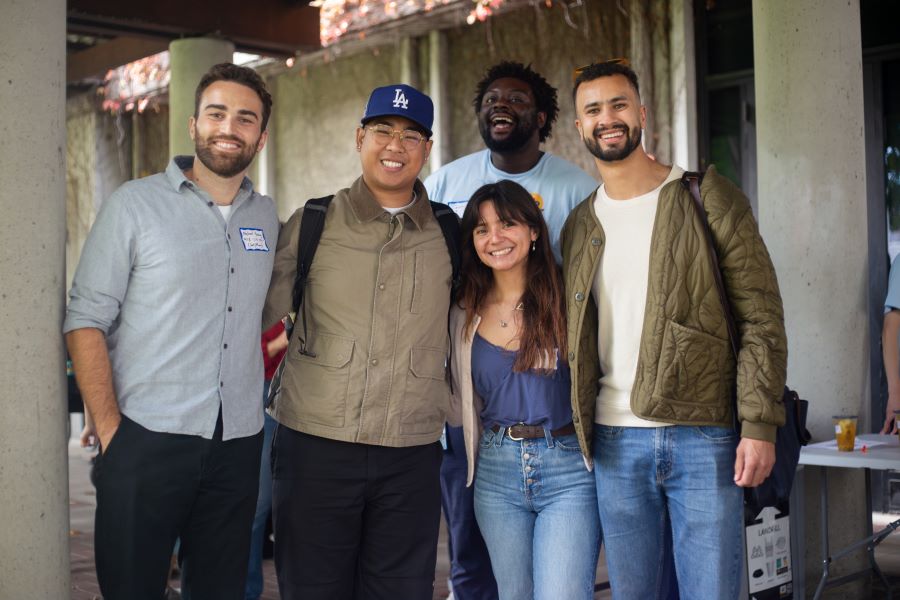
Of the 197 attendees, most represented the Department of Molecular and Cell Biology, with others from the Department of Neuroscience, Department of Integrative Biology, the Biophysics Graduate Group, Computational Biology, the Museum of Vertebrate Zoology, the Essig Museum of Entymology, as well as those with joint departmental appointments. While most were graduate students, attendees also included faculty, postdocs, staff, and undergrads.
PhD candidate Madi McCloud, another conference planner and participant, contends for more accountability in the field. “Science is perceived as this all-objective thing, yet there’s so much subjectivity in who has been allowed access to the field, who gets perceived to be a scientist, who gets access to education as a whole, and who receives the benefit of that research,” they say. “It’s our responsibility to make science accessible, to not be complicit in harm, and to always be seeking ways to learn more, to help others more, to build something better.”
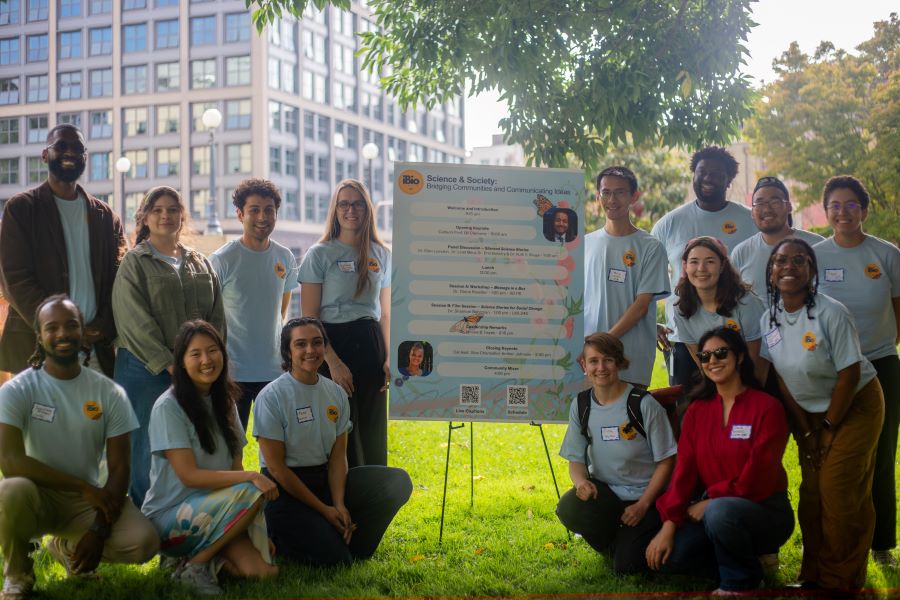
Green agrees. “Conferences like this bring people together in a way that strengthens both the science and the community behind it,” he says. “They create space for people to connect and support one another during a time when higher education is facing challenges, helping our members not only to excel in their science but also to find opportunities for personal growth in a collaborative, accessible, and welcoming environment.”
Credit for the event’s great success goes to the following organizers:
- Graduate planning members: Diler Haji, Gabriela Diaz Figueroa, Caroline He, Maya Dee Samuels-Fair, Madi Frances McCloud, Sydnee Thomasina Gould, Isaiah Grant
- Faculty advisers: Jose Pablo Vazquez-Medina, Hernan Garcia, Lance Kriegsfeld
- Staff advisers: Irlanda Gonzalez, Peony Yu, Monica Albe, Bobby Ewing, Carina Galicia
For more information about the conference, you can visit its website. Want to support iBio by volunteering, planning, or contributing funds to ensure this event’s sustainability? Please get in touch with Aubrey Green at aubreygreen@berkeley.edu.
iBio conference photo credits: Camryn Zurita, MCB graduate student
Back to Main Fall 2025 Newsletter Page



